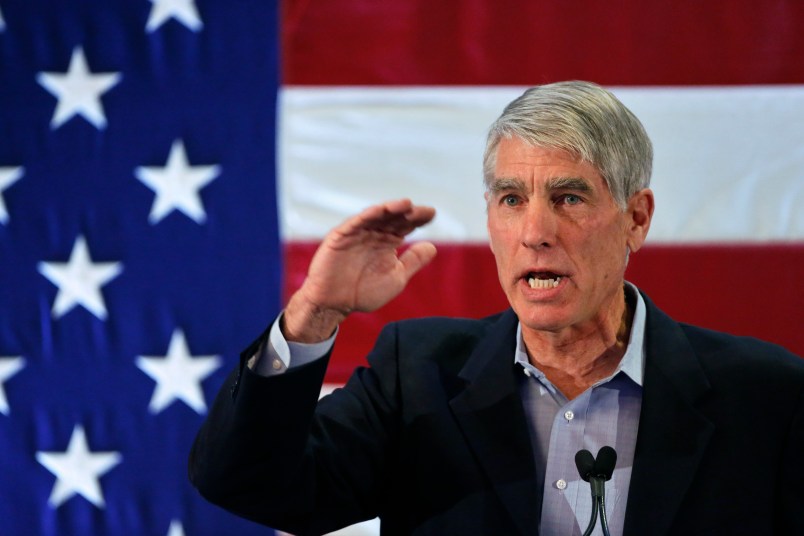Jobs, equal pay, and college affordability are among what politicians discuss when talking about the economy and young women. Yet it’s always shocking to me that they typically leave out reproductive health as part of the discussion. Reproductive health care access is just as important the economic discussion too. Recently the National Institute of Reproductive Health released a survey that polled likely voters feelings on reproductive rights and elected officials. The results? Three-quarters of voters polled not only support abortion access but strongly link it to a woman’s financial stability and equality. Additionally, voters are more likely to vote for elected officials who support such policies. This is not a surprise to any who works in the reproductive rights and justice movement. Access to reproductive care is about the economy, stupid.
We only have to look at history to understand how much reproductive access is about the economy. Historically, economists have concluded that oral contraceptives “revolutionized” the lives of women economically in the 20th century. Access to contraception followed by Roe v. Wade becoming law of the land not only gave many American women autonomy over when and if they reproduced but led to significant increase in women’s participation in the labor force. Today, women are now primarily breadwinners or part of a two-income household. And in a rough economy like we’ve had in recent years, contraception and abortion access becomes even more important. A 2013 Pew study shows that nearly a third of U.S. couples between the ages of 18 and 34 are putting off marriage or postponing having a baby for economic reasons.
Delaying parenthood due to economic reasons is familiar to many women in this country.
According to research published by the Guttmacher Institute, women have multiple reasons for seeking an abortion, but overwhelmingly these include economic reasons. A whopping three-fourths of women say they cannot afford a child.
Economic reasons were major factors for a young Latina named Lucy Flores. She grew up poor, was in an abusive relationship and even dropped out of high school. She had an abortion when she was 16, not for medical reasons, but because her six other sisters all had children in their teens. Lucy knew there would be no way for her to advance beyond her circumstances if she too succumbed to the fate of her sisters. Knowing this, Lucy convinced her father to pay the $200 for her procedure. Flores got her GED, went to college on a scholarship, received a law degree, and today she is the Democratic nominee for Lt. Governor of Nevada. Being able to get reproductive care safely and affordably is not a fringe issue, it is a daily economic concern for women and their families. Interfering with access hinders women’s progress.
To be clear, this certainly does not disregard the importance of other economic issues for women. After all, two-thirds of minimum wage earners are women; fair pay is still a pipe dream: white women still make 77 cents to the dollar of what a man makes; 64 cents to the dollar if you are a black woman; 55 cents to the dollar if you are a Latina. Perhaps if there were more paid parental leave policies in more it would change some reproductive decisions among women. But they fall short without affordable reproductive health care, including abortion.
It is crucial to recognize the significance of being able to determine when and if we have children through available and affordable reproductive health care services including abortion. As it did with Lucy Flores, being able to wait to become a parent can change the trajectory of our life.
Many politicians have overwhelmingly failed to understand reproductive health as an economic issue. In 2012, anti-choice elected officials led a full legislative assault on women’s access to contraception by challenging its no co-pay provision in the American Affordable Care Act. And in 2012 and 2013, state legislatures in Texas, North Carolina, Virginia, and Oklahoma, tried to push forward additional restrictions such as 20 week abortion bans, mandatory waiting periods, and ultrasounds, which add unnecessary extra time and money for people seeking abortion care.
On the flip side, those elected officials who have vigorously fought rollbacks to reproductive health and have often been rewarded at the polls for it. In Virginia, Democratic candidate for Governor Terry McAuliffe, along with Democratic candidates for Lt. Governor and Attorney General, made reproductive rights a major talking point in their campaigns whereas Republican candidate for Governor, Ken Cuccinelli opponent was renowned in Virginia and across the country for bullying the Virginia Board of Health into pushing through TRAP regulations that led to clinic closures in Virginia. The result? For example, for the first time in 25 years Virginia had a pro-choice sweep of all statewide offices. Virginia women voters were key to the pro-choice sweep as they proved that a reproductive right was a major election issue for them.
Many voters who live regular American lives every day understand what it takes to survive in today’s economy. Affordable access to abortion and contraception are a big part of that reality.
Atima Omara is President of the Young Democrats of America, the nation’s largest youth partisan organization in the country She is the first African American and the fifth woman to serve as President in its 82-year history. She often writes at the intersection of politics and women’s rights, and youth.







Yep. Here’s the short hand for it - being able to choose when you have your children is determinant in your long term financial status. End of story. That goes for women whether married or single.
Yep…Americans are too busy shouting each other down or “taking their country back” to give a rats ass beyond political buzzwords 101…any incendiary bullshit thrown against the wall is good enough to distract so many who apparently were deprived of connect the dots puzzle books as children.